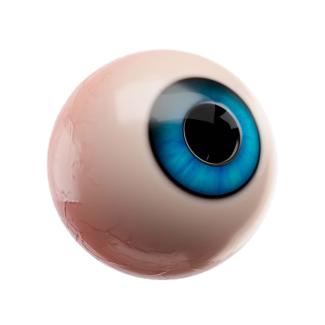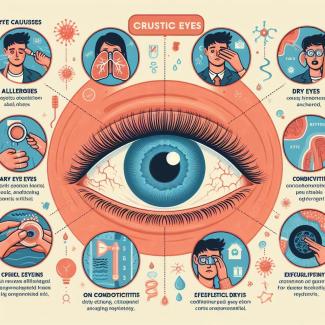
Bloodshot eyes, also known as red eyes, occur when the small blood vessels on the surface of the eye (the sclera) become dilated or inflamed. Several factors can cause bloodshot eyes, including:
- Conjunctivitis (Pink Eye): This is one of the most common causes of red eyes. It can be caused by viral or bacterial infections, allergies, or irritants. Pink eye typically leads to redness, itching, and discharge from the eye.
- Eye Allergies: Allergies to pollen, dust, pet dander, or other allergens can cause redness and itching in the eyes. This is often accompanied by other allergy symptoms like sneezing and a runny nose.
- Dry Eyes: When the eyes don't produce enough tears or the tears evaporate too quickly, it can lead to dry, irritated, and red eyes.
- Environmental Factors: Exposure to smoke, wind, dust, or dry air can irritate the eyes and cause them to become red.
- Contact Lenses: Wearing contact lenses for an extended period, poor lens hygiene, or an allergic reaction to lens solution can lead to red eyes.
- Eye Strain: Prolonged periods of reading, using a computer, or other tasks that require intense focus can strain the eye muscles and cause redness.
- Subconjunctival Hemorrhage: This is a broken blood vessel on the white part of the eye, usually caused by minor trauma or an increase in pressure in the blood vessels. It can make the eye appear very red, but it usually resolves on its own.
- Chemical Irritants: Exposure to irritants such as chlorine in swimming pools, cleaning products, or other chemicals can lead to red eyes.
- Infections: Infections of the eye or surrounding areas, like a stye or a chalazion, can cause redness.
- Irritants or Foreign Bodies: The presence of a foreign body in the eye or accidental rubbing of the eye can cause irritation and redness.
If you have persistent or severe redness in your eyes, or if it's accompanied by pain, changes in vision, discharge, or light sensitivity, it's important to seek medical attention from an eye care specialist. They can determine the underlying cause and recommend appropriate treatment.






